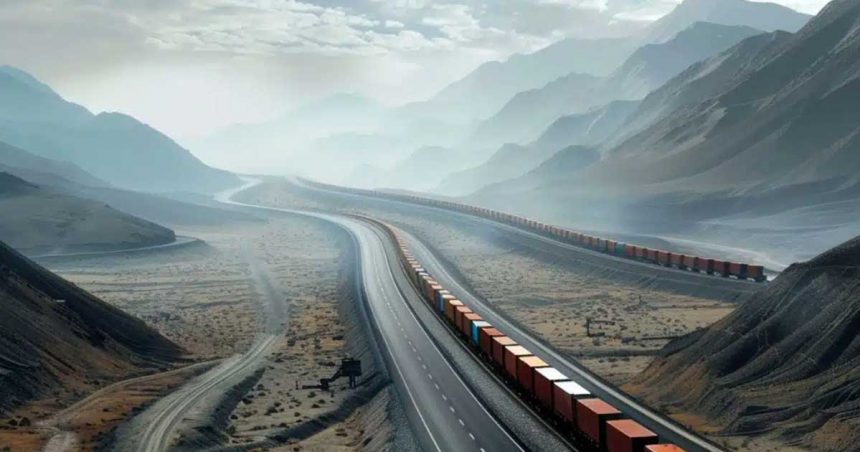Japan has unveiled an ambitious plan to revolutionize its logistics infrastructure with the construction of a 500km (310-mile) conveyor belt road called the Autoflow-Road. This groundbreaking project aims to tackle key issues in Japan’s transportation sector, such as labor shortages, traffic congestion, and environmental concerns.
The Autoflow-Road Project
The Japanese Ministry of Land, Infrastructure, Transport, and Tourism has proposed the development of the Autoflow-Road, an advanced automated conveyor belt system designed to transport goods between Tokyo and Osaka. This system will utilize high-capacity pallets that can move up to one tonne of freight per pallet and will operate continuously, 24 hours a day.
Read More: Japan is Home to The World’s Healthiest Kids. Here’s 4 Things They Do Differently.
Addressing Labor Shortages
The Autoflow-Road project aims to alleviate Japan’s severe shortage of delivery drivers. Recent regulations limiting trucking overtime hours to 80 per month have added strain to the logistics system. With over 90% of Japan’s cargo transported by road, this shortage could result in significant economic losses, estimated at $70 billion by 2030. The Autoflow-Road is expected to offset these impacts by replacing the work of around 25,000 truck drivers per day.
Reducing Traffic Congestion
The conveyor belt road is designed to ease traffic congestion on Japan’s busiest highways. By transporting freight through tunnels, median strips, and hard shoulders of existing roads, the system will free up space on surface roads, reducing traffic congestions and enhancing overall traffic flow. By utilizing existing infrastructure, the project is relatively easy to implement.
Environmental Benefits
Aside from logistical enhancements, the Autoflow-Road will contribute to Japan’s environmental objectives by lowering greenhouse gas emissions. Transport Minister Tetsuo Saito mentioned that the project “will not only address the logistics crisis but also help to reduce greenhouse gas emissions.” By replacing traditional truck-based freight transport with automated conveyor belts, the system will decrease carbon dioxide and particulate matter emissions, ultimately improving air quality and reducing the environmental impact of the logistics industry.
Read More: These Tiny Squirrels That Look Like Pokémon Can Only Be Found On Remote Japanese Islands
Technical and Economic Challenges
Despite its potential benefits, the Autoflow-Road project faces considerable technical and economic challenges. The estimated construction cost is projected to be up to $26 billion, with expenses ranging from $48 million to $550 million for every six miles of tunnel, depending on the location. The success of the project will hinge on overcoming these financial obstacles and addressing structural and environmental issues.
Global Implications
Japan’s conveyor belt road is part of a larger global trend towards innovative logistics solutions. Similar projects in Switzerland, China, and the Netherlands aim to enhance logistics efficiency and decrease environmental impact. However, Japan’s project stands out due to its scale and the unique challenges posed by the country’s population density.
Conclusion
The Autoflow-Road presents a bold and innovative solution to Japan’s logistics challenges. By addressing labor shortages, reducing traffic congestion, and cutting greenhouse gas emissions, the project has the potential to transform the country’s transportation infrastructure. While significant hurdles remain, the successful implementation of the Autoflow-Road could set a precedent for future logistics solutions worldwide.
Read More: Can You Solve This Math Problem That Went Viral In Japan?
Sources
- “Japan unveils plans for 500km conveyor belt road that could replace 25,000 trucks per day.” Super Car Blondie. Claire Reid. July 3, 2024.
- “FreightTech Friday: Japan’s proposed conveyor-belt highway.” Yahoo. Grace Sharkey.
- “Japan’s 310-mile conveyor belt to carry freight of 25,000 trucks a day.” Interesting Engineering. Shubhangi Dua. June 26, 2024
- “Japan is building a giant, underground conveyor belt to transport all the stuff people buy.” Fast Company. Jesus Diaz. July 3, 2024.






